Tooth extraction
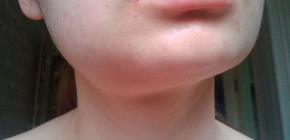
Often within 1-3 days after tooth extraction, patients develop varying degrees of severity of edema of the soft tissues bordering the well. The most severe edema is observed when the molars are removed on the lower jaw - for example, retinated or semi-reinforced wisdom teeth, when the face can become largely asymmetric due to swelling of the tissues. And this is only half the trouble - often severe pain and problems with opening the mouth join when an elementary meal turns for a tormented person into real torture. Is it possible to initially prevent the appearance of a pronounced edema and what to do if it nevertheless appeared and acquired an impressive size? Is it possible in such cases to develop dangerous complications and when should I rush to the doctor for help as soon as possible? Let's figure it out ...
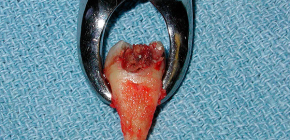
What can I say - tooth extraction by many people is considered one of the most unpleasant dental procedures. Meanwhile, there are a number of specific practical recommendations that allow the patient to survive tooth extraction with minimal losses for his health, nerves and wallet - we will talk about this later. And also we will see what stages surgical manipulation is composed of, in which cases it is better to wait a while to remove a problem tooth and how to remove a tooth without pain and without the risk of running into a "villain surgeon" who has the very place in a meat processing plant ...
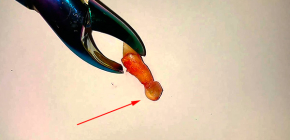
Many patients, having learned that a large cyst has formed on their tooth, start to panic - this is what, then, the tooth will have to be removed, and then it’s also necessary to extract the cyst from the jaw and scrape it! And even when the doctor proposes not to remove the tooth, but to make a resection of the root apex with a cyst, this is also often perceived not very positively - after all, you will literally have to cut a piece of bone from the jaw and cut off a piece of tooth with a purulent sac on the root through the hole created with a drill. . Is it really impossible to remove the root cyst somehow conservatively, without surgery, to cure it with the help of any drugs? We’ll talk about all these interesting nuances in more detail ...
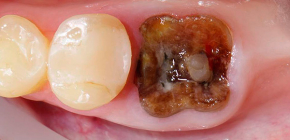
When the crown of the tooth is badly damaged (for example, by caries, or due to trauma), the question often arises of removing the roots of the tooth. It may also happen that a cyst or granuloma formed at the top of the tooth root due to the inflammatory process - in such situations it is sometimes possible to save the tooth from removal by resection of the root apex, or even the entire diseased root has to be amputated. We’ll talk more about what is useful to know about tooth root removal: we’ll see when, in general, root removal is required, what can you expect in the office of a dentist-surgeon and what problems sometimes arise during the procedure ...
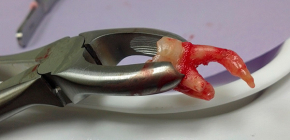
When it is no longer possible to save a tooth, it becomes necessary to remove it. It would seem that removing is not a cure, which means that this service should not cost too much. However, not everything is so simple, and in reality, the price for removing “complex” teeth in individual clinics can reach 10–20 thousand rubles (especially when it comes to removing retinated wisdom teeth). Meanwhile, removing any tooth today is practically free. Why is there such a difference and, in general, what factors affect the cost of tooth extraction? Let's figure it out ...
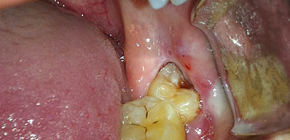
When certain problems start with a wisdom tooth, a person often faces a difficult choice - either try to conduct an expensive tooth treatment (and not always with a guaranteed positive result), or remove it in order to avoid the development of serious complications. Meanwhile, there are a number of very clear criteria that allow us to make the right decision regarding the preservation or extraction of wisdom teeth - we will talk about this in more detail later ...
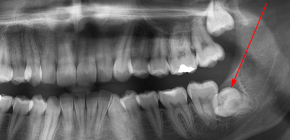
Generally speaking, for any reason, any tooth can be retarded, but most often we are talking about eights - wisdom teeth. Be that as it may, retention of the tooth (that is, difficult eruption) often causes a person very serious problems. About whether there are ways to help the retined tooth to erupt normally without resorting to removal, as well as how to protect yourself from purulent inflammation and in which cases you need to get rid of the tooth as soon as possible - we'll talk about all this in more detail ...
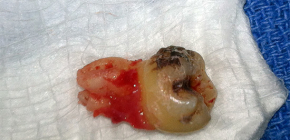
The removal of any tooth, including wisdom teeth, sometimes does not proceed exactly as planned by the dental surgeon initially. There is always a risk of making a mistake, the consequences of which the patient will inevitably feel either immediately or a little later when he comes home. We will talk about such problematic, unpleasant and dangerous situations that may arise both during the procedure for removing a wisdom tooth and after it ...

After the dental surgeon has removed the tooth, a wound in the gum remains in the patient’s mouth, which sometimes heals for a very long time (not one month). How to rinse it and how to make it drag on faster and not get sick - this question still worries not only patients of the clinics, but even the dentists themselves. The fact is that in modern dentistry, opinions regarding rinsing the mouth after the tooth extraction procedure were divided: diametrically different approaches to solving the same problem appeared - we will consider them further ...
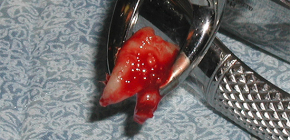
If in the near future you need to remove the upper wisdom tooth, then before visiting the dentist-surgeon you probably already were puzzled by a whole series of questions: how is the removal procedure going, is it painful, is there a danger of complications, what should be most afraid of, what the cost of the service depends on and is there a risk that you will be “shod” by self-serving doctors? These and other no less interesting questions we will discuss further ...
As if a person was not afraid to remove his teeth, but sometimes you still have to consult a dentist-surgeon for this purpose. The reasons can be different, and the complexity of the procedure itself can also be different - sometimes everything goes easily and quickly, in just 5 minutes, and sometimes a doctor can spend hours getting roots of a tooth into small pieces from a torn bleeding gum.
Moreover, in both cases, the patient is not safe from a wide variety of complications that may arise both directly during the tooth extraction procedure and after its completion. These very important health issues will be discussed in this section of the site.
For example, you will find out why sometimes after removing the lower wisdom teeth, part of the cheek, lips, chin can simply become numb for several weeks, months, or even forever. Or why, for example, after tooth extraction in the upper jaw, food can suddenly literally begin to leak from the mouth through the nose ...
In addition, it will be very useful for anyone who is about to remove a tooth (or has already come home from the hospital without receiving enough information from the doctor) to know how to act if the cheek on the side of the extracted tooth is suddenly swollen, the temperature rises, or, for example, bleeding from a hole cannot stop for hours. And this is only a small part of the problem points that you may encounter after tooth extraction and about which we will try to convey the maximum of useful and important information in this section of the site.
